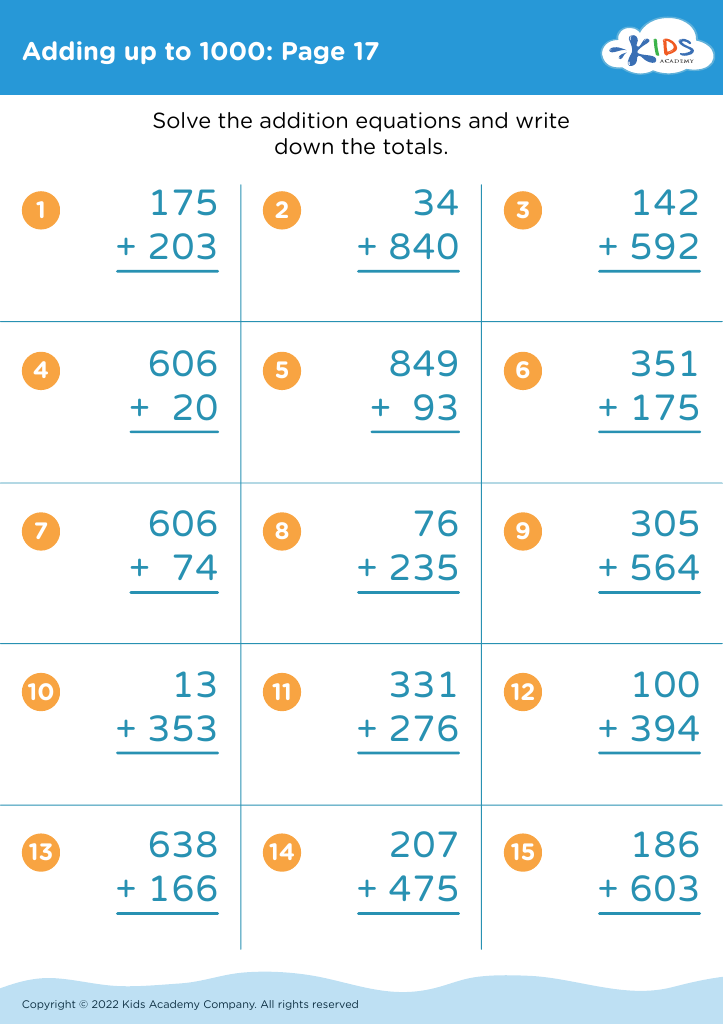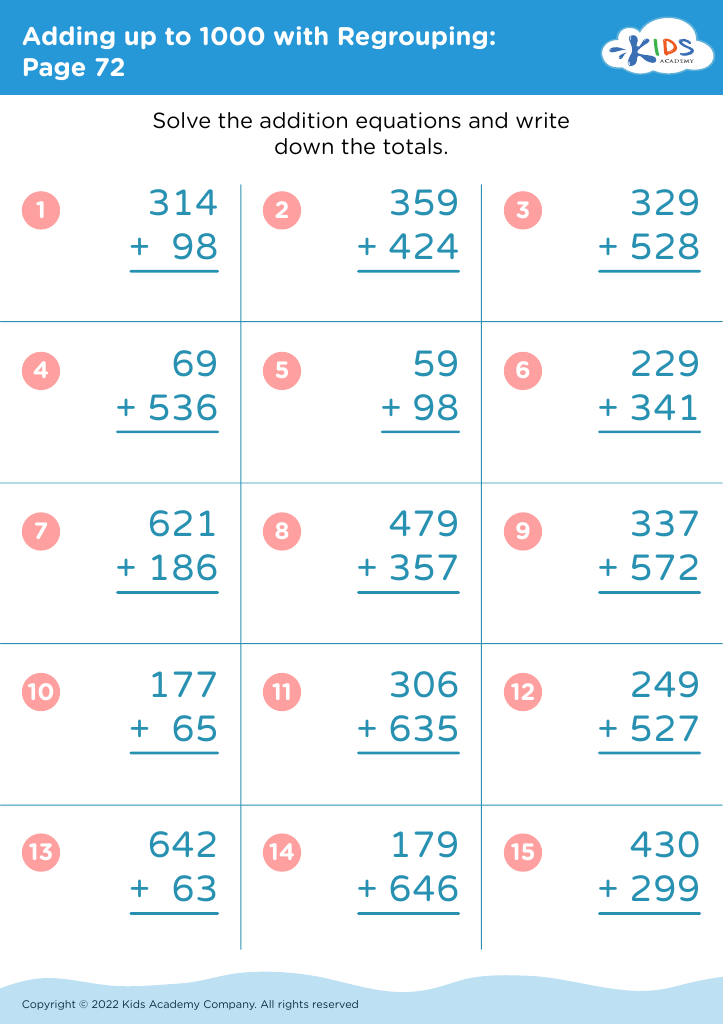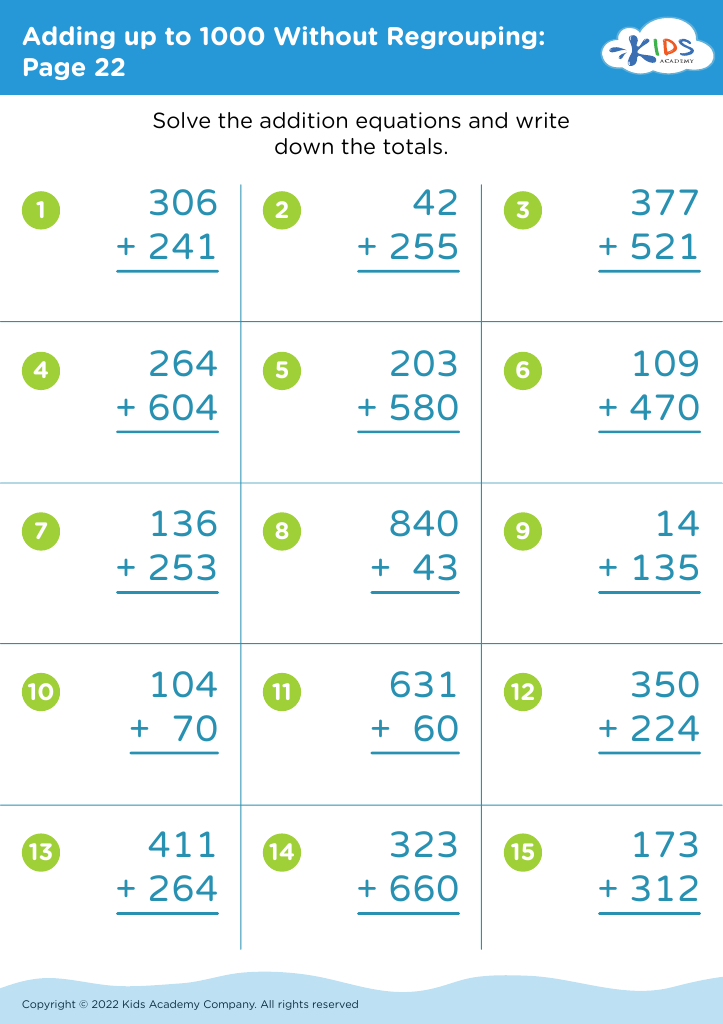Problem Solving Adding up to 1000 Worksheets for Ages 7-8
3 filtered results
-
From - To
Explore our engaging "Problem Solving Adding up to 1000 Worksheets" designed specifically for children aged 7-8. These interactive worksheets provide a fun and effective way to strengthen young learners’ math skills, focusing on addition strategies and problem-solving abilities. Each worksheet encourages students to tackle various numerical challenges, enhancing their critical thinking and reasoning skills while building confidence in math. With a variety of scenarios and problems to solve, children will enjoy practicing their addition in a meaningful context. Discover the joy of learning math with our worksheets that not only entertain but also inspire young minds to excel!
Parents and teachers should prioritize problem-solving skills in students aged 7-8, particularly when it comes to adding up to 1000, because these skills lay the foundation for critical thinking and mathematical understanding. At this age, children are developing cognitive abilities and learning ways to tackle challenges. Engaging them in addition problems that culminate in 1000 helps sharpen their computational skills, encourages logical reasoning, and enhances number sense.
Furthermore, mastering such problem-solving techniques promotes confidence in math, which is essential as students progress to more complex concepts. It empowers them to approach bigger numbers and percentages with ease and prepares them for real-life scenarios like budgeting, shopping, or planning events. Additionally, these skills foster adaptability; children learn to devise multiple strategies to assess and solve problems, an ability invaluable in any discipline.
By promoting these math competencies, parents and teachers can inspire a love for learning and resilience in overcoming obstacles. Encouraging a problem-solving mindset at this early stage also helps create lifelong learners who are better equipped to navigate academic challenges and develop a strong foundation in mathematics to support their future education.

















